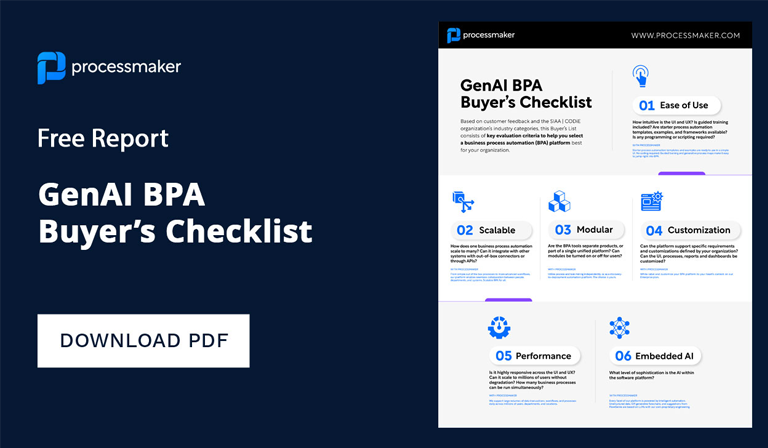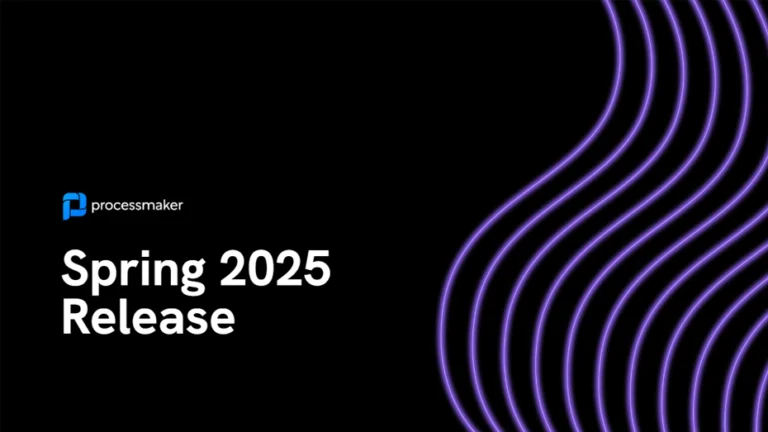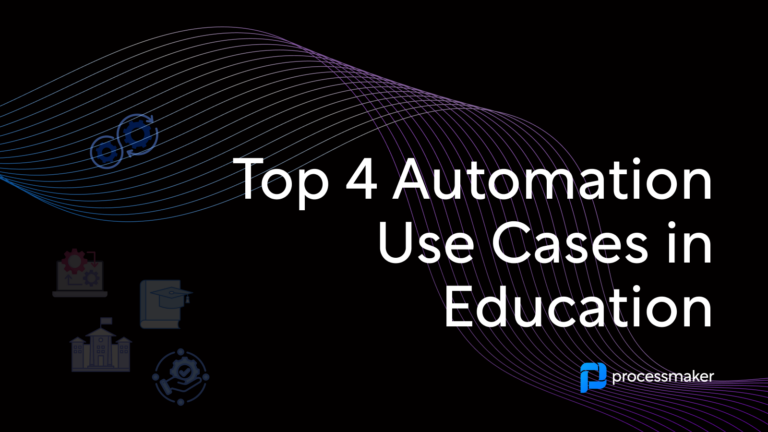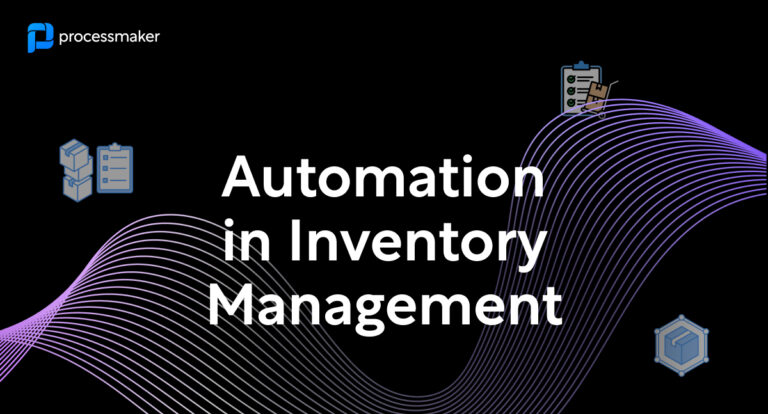Get set: automation is coming to all corners of your university. The future of education will be more automated, interconnected, and immersive. So much so, that analysts predict that the adoption of more advanced tech in education will grow by $253.82 million over the next four years. It will better streamline administrative practices while plunging both students, faculty, and professors into the metaverse.
In recent years, there’s been an increased focus on flashy front-facing automations like chatbots and contactless payments. Many institutions are also quietly under the hood, streamlining education workflow automation in back-office operations.
But beyond optimizing the workload, we’re on the cusp of sweeping changes in education. Futurists are exploring the role automation will play in every nook, cranny, and corner of your campus. Here’s where you’ll find it in the coming years.
Automation is driving a new era in “hands-on” study
How will Zoom rooms evolve into the metaverse? The concept of a “field trip” falls away, as every day in the classroom becomes a fully interactive experience. Goodbye whiteboards and rows of chairs: seminar rooms will transform into vibrantly immersive historical moments. A teacher will serve as the tour guide to a band of student-avatars, but the world is so alive that they can notice small details and point them out to a friend. Instead of watching a video walkthrough of an architectural dig, students can bend down and get their digital hands dirty, unearthing pottery shards amongst the pixels.
Automation technologies like artificial intelligence and machine learning will also partner up with the marvels of high-performance computing.
Students will soon be able to run simulations that are, at present, only possible in the most exclusive labs. Universities will use these tools to test how medical implants interact with the complexities of human biology, explore the cosmos, or observe how slight alterations to human behavior can impact the planet’s climate. In EdScoop, one astrophysicist at Purdue celebrated advances in high-performance virtual reality, where students now act like a “bomb squad,” toying with different variables in 3D to see, for themselves, how they impacted exploding stars.
Currently, simulations like these can take days or weeks, while advances in computing will cut the wait down to mere minutes. Virtual reality headsets and greater access to supercomputers will allow students to run wildly complex simulations that’ll undeniably improve scientific discoveries in the future.
Building a smarter campus
Universities are small cities hurtling towards many of the tech advances thrumming through the IoT sector. 5G, capable of carrying a heavier data load at far quicker speeds, will accelerate these initiatives.
According to Deloitte, this new era of ultra-connectedness will transform campuses using “technology that enables frictionless, touchless, and intuitive experiences.” It’ll all be made possible by ubiquitous sensing—a trend where everything from watches to lampposts and laundry machines connects to the internet. Huawei predicts 40 billion of these devices will have sensing capabilities by 2025, all collecting and sharing data to improve a slice of the human experience
Ubiquitous sensing has driven innovations in location-based services, retail—even parking lot tech—that will continue to trickle down into education communities:
- Augmented reality apps will point event-goers in the right direction
- Smart parking lots will lead sports fans to open spots
- Students can check washing machine availability or library crowd levels from their phone
- Public safety surveillance will leverage facial recognition and sound levels to proactively mine for potential incidents
- Intelligent facilities management will self-regulate lighting and HVAC schedules in dormitories and classrooms
In the coming years, how you aggregate data will become an invaluable resource for creating more immersive and automated experiences across your campus.
Advanced data mining will be a boon to admissions
On one side of the equation, automated tools have made it easier for students to apply to more schools. But on the opposite end of the spectrum, the rise in per-student applications means more competition amongst universities. Schools are using sophisticated data models to make sure they’re focusing marketing and outreach efforts on the students most likely to attend.
Artificial intelligence can weigh behaviors—like clicks on emails and appearances at in-person mixers—to determine how likely a student is to greenlight an acceptance letter. The Wall Street Journal reports that these systems are pulling in more nuanced data than ever—including social media activity and whether a student sends a thank you message after an alumni meet-and-greet. With greater visibility into a student’s enrollment probability, universities can effectively funnel resources into courting only the most interested prospects.
Automation and the role of educators
Futurists mull over the evolving role of humans in the classroom. Will schools bestow a personalized robot to every student that will serve as their instructor over the entire 4-year term? While that may be a far-flung concept, automation will definitely help professors curate a more one-on-one experience for each student. Instead of a one-size-fits-all syllabus, teachers will be able to build a unique course of learning. Students far ahead of others can hop onto more advanced materials, while professors can feed supplemental exercises to those that need more time.
There are many opportunities to complement a professor’s efforts with automation, but it will be a long time before the technology fully supplants a human’s presence. Higher education is a lot more than studying the materials and acing exams—the factors that debatably most influence a student’s trajectory are things bots cannot replicate.
But automation can surely take on responsibility for the more menial tasks so professors can focus on the crucial elements of mentorship, guidance, and fostering a sense of vocation in students. Few students attend university in hopes of becoming a robot: professors will continue to serve as remarkable role models, providing a schema for students’ life goals.
If your college or university has gingerly approached automation initiatives, now’s the time to pick up speed. These exciting technological innovations will not exist in a silo, but will require tightly synced operations. Dialing in your existing workflows now builds the foundation you’ll need to integrate with these exciting technologies coming down the pipeline.





